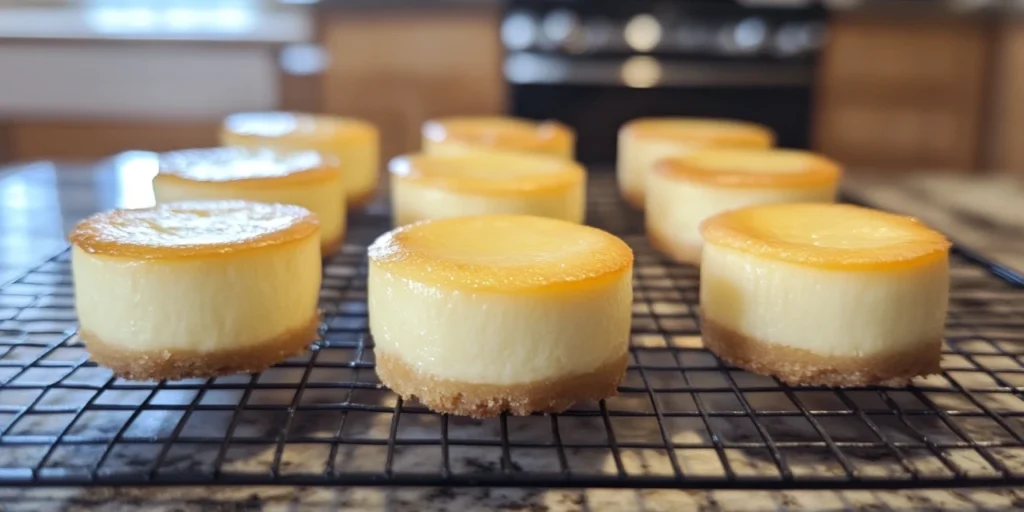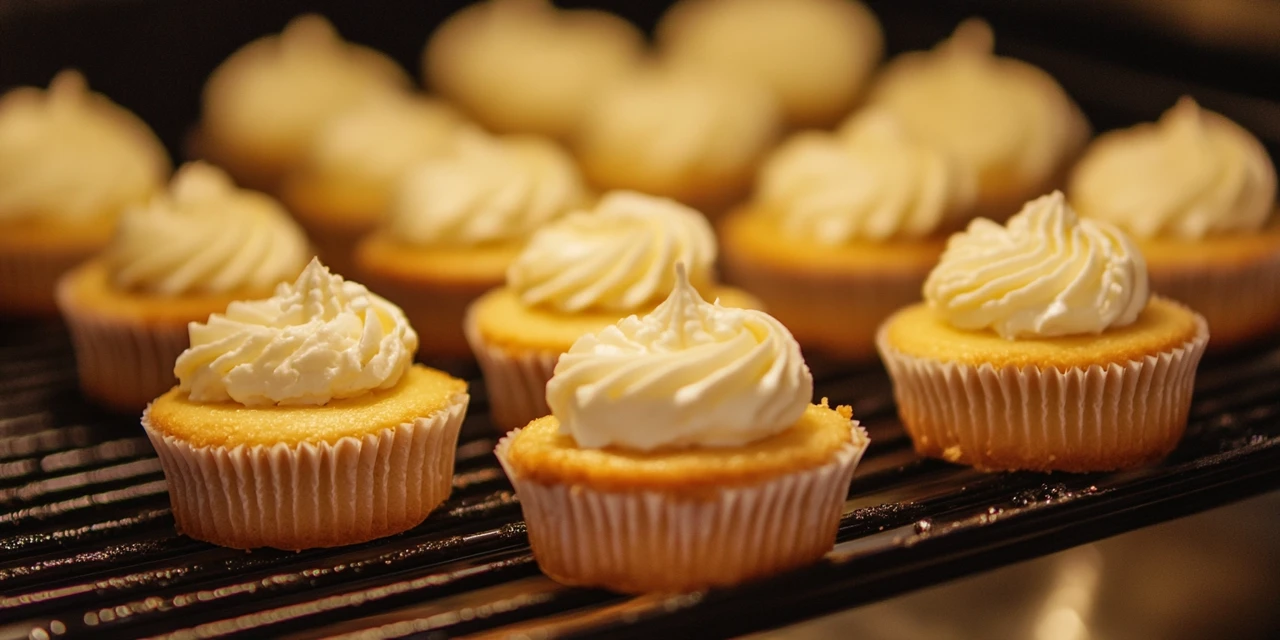Mini cheesecakes are a delightful dessert, perfect for gatherings or a special treat. Baking them to perfection, however, requires attention to detail to achieve that signature creamy texture without cracks or dryness. Let’s dive into how to know when mini cheesecakes are done, so every batch turns out deliciously smooth and flawless.
Why Baking Mini Cheesecakes to Perfection Matters

When it comes to baking mini cheesecakes, getting the timing and technique right is essential. Over-baked mini cheesecakes can be dense and dry, while under-baked ones may collapse or remain too soft. Perfectly baked mini cheesecakes have a creamy consistency, smooth top, and a light wobble in the center. To explore additional baking techniques, take a look at this Easy Mini Cheesecakes Recipe for helpful insights on achieving the perfect texture and presentation.
Another aspect to consider when baking is the difference in techniques between traditional cheesecakes and mini variations. Since mini cheesecakes cook faster, learning specific methods for these smaller treats, like using a guide to cheesecake bites, can help you get optimal results.
Common Challenges with Mini Cheesecakes
Baking mini cheesecakes presents unique challenges. Common issues include:
- Cracking: Often a result of over-baking or overmixing the batter.
- Sinking centers: Caused by uneven baking or rapid cooling.
- Dry or dense texture: Resulting from excessive baking time or high temperatures.
Understanding the right baking temperature and technique is crucial for preventing these issues. Check out our tips for a smooth, crack-free surface by avoiding some of these common cheesecake mistakes.
Step-by-Step Techniques for Baking Mini Cheesecakes
Essential Tools and Ingredients

Having the right tools on hand can make a significant difference in your results. Essentials include:
- Muffin tin or mini cheesecake pan for consistent sizing.
- Liners or parchment circles to avoid sticking.
- Toothpick and oven thermometer for accurately checking doneness.
For ingredients, quality cream cheese and fresh eggs are essential to achieve that smooth and creamy texture. Consider using these ingredients to ensure consistency throughout the batter.
Key Indicators of Doneness in Mini Cheesecakes
Once your batter is prepared, knowing when your mini cheesecakes are done involves a few reliable techniques:
1. The Wobble Test
The wobble test is one of the easiest ways to determine doneness:
- Carefully open the oven door and give the pan a slight shake.
- If the centers of the mini cheesecakes exhibit a slight wobble, they are likely done. The edges should be firm while the center jiggles slightly.
- Avoid over-shaking, as it can cause cracks.
2. Toothpick or Knife Test
The toothpick test is simple but effective:
- Insert a toothpick into the center. If it comes out with a few moist crumbs, they’re done. If wet, continue baking.
- Be cautious not to damage the surface, especially if planning to add toppings like strawberries or chocolate ganache.
Temperature Testing for Precision
For the most accurate results, use a thermometer:
- Mini cheesecakes are generally ready when the center reaches 150-155°F.
- Insert the thermometer gently to avoid disrupting the surface.

Troubleshooting Common Mini Cheesecake Issues
Even with the best care, challenges can arise. Here are tips for common problems:
- Cracking: Allow your mini cheesecakes to cool gradually to prevent cracks. You can also try a water bath for added moisture.
- Overbaking: If they’re too dry, add toppings like whipped cream or fruit to reintroduce moisture.
- Undercooked centers: For too-soft centers, bake a few extra minutes or refrigerate to firm them up.
For other creative cheesecake ideas, you may enjoy reading about how mini cheesecakes differ from traditional recipes, which can offer additional tips for perfection.
FAQs on Mini Cheesecakes
- How long should I bake mini cheesecakes?
Most mini cheesecakes bake within 15-20 minutes at 325°F. Monitor them closely to avoid overbaking. - Can I use a regular cheesecake recipe for mini cheesecakes?
Yes, but reduce the baking time to prevent overcooking. - What happens if I open the oven door while baking?
Opening the oven door can cause uneven baking. Try to limit it to necessary checks. - How do I prevent mini cheesecakes from cracking?
Bake at a low temperature and cool gradually to avoid cracking. - Is there a way to check if mini cheesecakes are done without a thermometer?
Yes, the wobble or toothpick test works well to gauge doneness.
Conclusion
Mastering the art of baking mini cheesecakes to perfection is within reach. By using visual cues, temperature checks, and avoiding common mistakes, you’ll consistently enjoy mini cheesecakes with a rich, creamy texture and smooth surface. With these tips, each batch can be a delectable success that’s sure to impress your friends and family!
This structured approach and strategic internal linking will guide readers effectively, offering both practical baking tips and additional resources.

